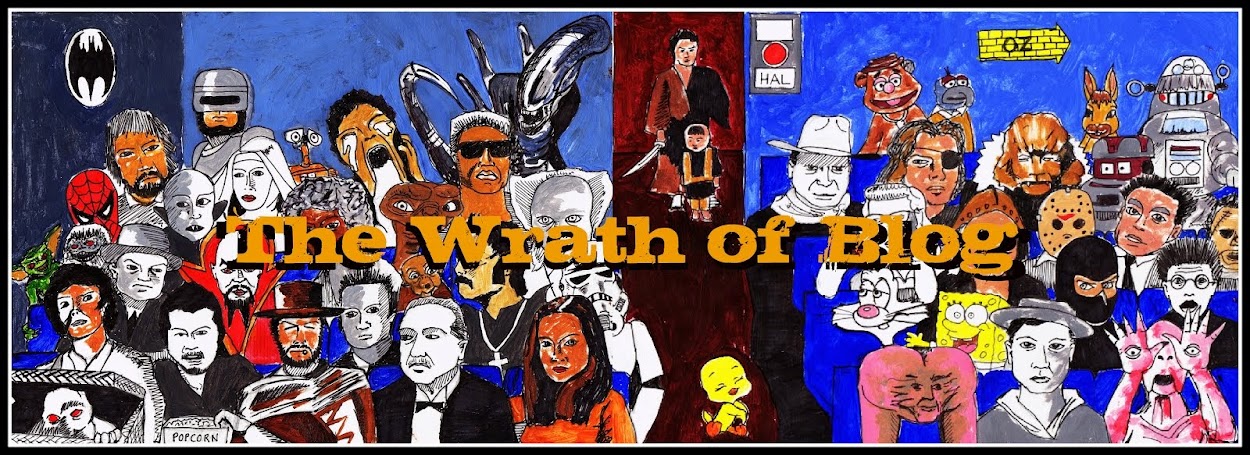 The film follows the Ray family as they go about their day-to-day lives in a small, rural village in Bengal. The mother Sarbujaya (Karuna Bannerjee) carries the weight of the burden, seemingly forever cleaning and working and living off the land. The father Harihar (Kanu Bannerjee) helps out doing odd jobs and mostly working away, chasing back payments he has not received from his landlord boss. Durga (Uma Das Gupta) is the teenage daughter who seems to have a weakness for petty theft and has something of a reputation in the village. The grandmother Indir (Chunibala Devi) spends her time stealing food from her daughter and wandering the village. Watching over everything is the most recent arrival Apu, who sees everything with a wide-eyed innocence and remains generally silent throughout the film. By the way, the mother, father and Apu are all played by actors with the surname Bannerjee, although they are not related.
The film follows the Ray family as they go about their day-to-day lives in a small, rural village in Bengal. The mother Sarbujaya (Karuna Bannerjee) carries the weight of the burden, seemingly forever cleaning and working and living off the land. The father Harihar (Kanu Bannerjee) helps out doing odd jobs and mostly working away, chasing back payments he has not received from his landlord boss. Durga (Uma Das Gupta) is the teenage daughter who seems to have a weakness for petty theft and has something of a reputation in the village. The grandmother Indir (Chunibala Devi) spends her time stealing food from her daughter and wandering the village. Watching over everything is the most recent arrival Apu, who sees everything with a wide-eyed innocence and remains generally silent throughout the film. By the way, the mother, father and Apu are all played by actors with the surname Bannerjee, although they are not related.One of Ray's key influences to filmmaking are the great films of Italian neo-realism, such as Vittorio De Sica's masterpiece The Bicycle Thieves (1948) and Roberto Rossellini's Rome, Open City (1945). It is evident here, as the film has the same visual poetry and social realism, as well as the ability to transport the viewer into a world that they most likely have never, and will never, experience first hand. It is a fascinating insight into how some people of Bengal had to live during this period, and their social attitudes. When Durga is accused of stealing a necklace from one the village children, the women of the village form a kind of posse to confront her mother, accusing her of being unable to raise her children correctly. The family have conflicting attitudes to the rogue-ish grandmother who spends her time almost begging for clothing to keep her warm; the mother looks down on her as a leech, yet the children, especially Durga, look upon her as a loveable character, and someone they can always seek comfort in.
It's a film dominated by outstanding performances. Devi was discovered by Ray living in a brothel, having previously starred in two films in her heydey. She is loveable and tragic, and her performance here would become her swansong, at the age of 80. Tragically she died of influenza before the film was released but she will be immortalised for her portrayal here. Karuna Bannerjee is also a standout, switching from sadness to joy to tragedy with effortless conviction, especially during the third act of the film where the family struggles to hold out during monsoon season, where her home risks being ripped apart by the torrential rain and wind. The biggest star of the show, however, is Ray himself, creating a multi-layered film of visual poetry and gorgeous cinematography, with very little funding for his project. He would go on to be one of world cinema's most creatively successful and critically acclaimed directors, making over 30 features in a 35-year career. At the start of filming, Ray had never directed anything in his life, the camera had never shot a film, and the majority of the actors has never acted in front of the camera. Absolutely outstanding stuff, and deserves it's place amongst the world's greatest films.
Directed by: Satyajit Ray
Starring: Kanu Bannerjee, Karuna Bannerjee, Subir Bannerjee
Country: India
Rating: *****
Tom Gillespie














